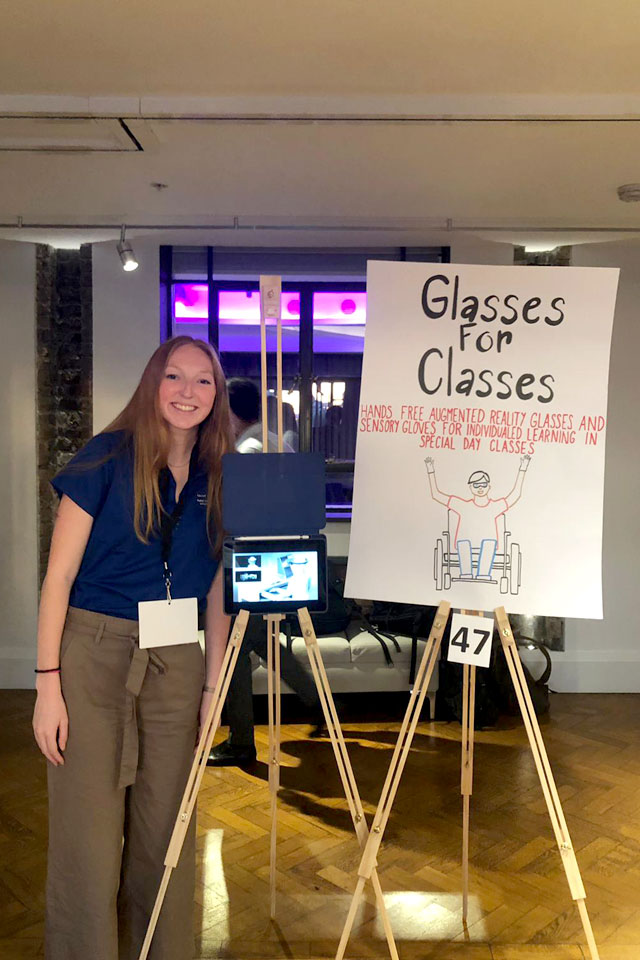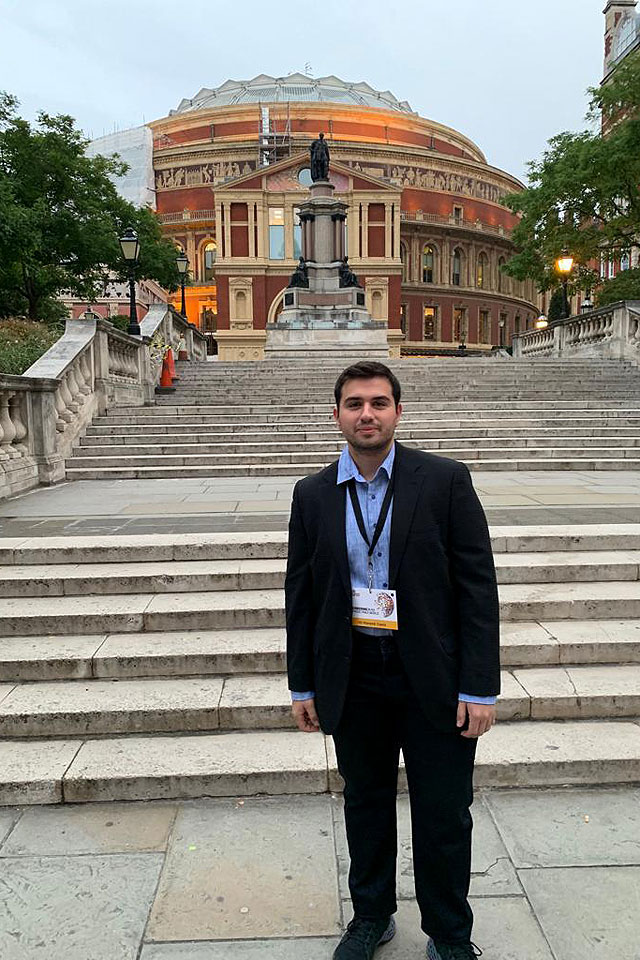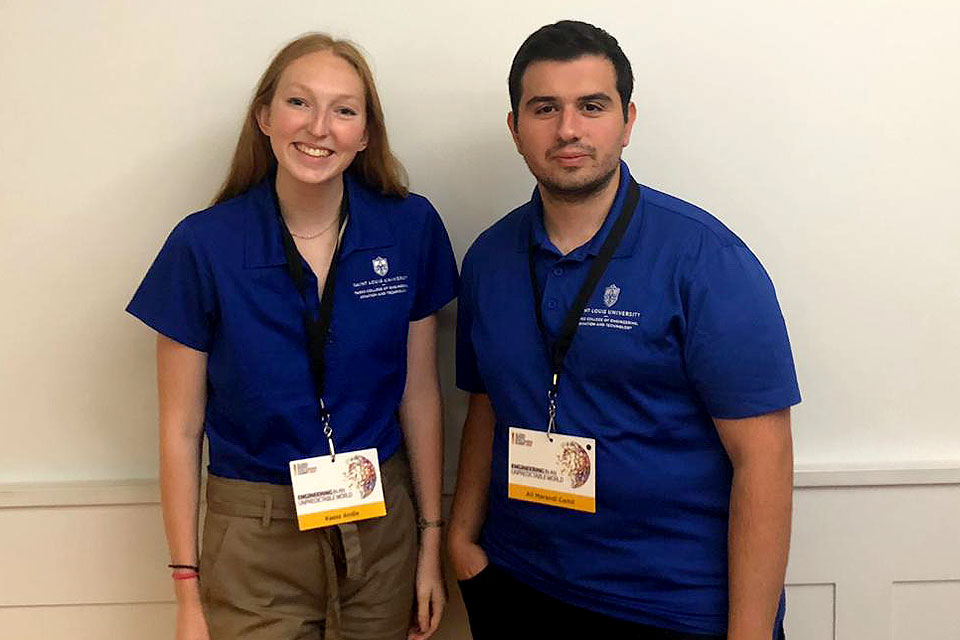SLU Engineering Students Explore Solutions to Humanity’s Global Challenges
10/03/2019
With humanity facing unprecedented challenges posed by the planet’s growing population, two Saint Louis University engineering students joined peers from around the globe at the 2019 Global Grand Challenges Summit in London to propose and pitch creative solutions to issues from the uses of artificial intelligence to how to bring personalized learning to students with special needs.
Sophomore Andie Kaess and senior Cemil Can Ali Marandi represented the University through the Grand Challenge Scholars program in SLU’s Parks College of Engineering, Aviation and Technology. The Grand Challenge Scholars program was created in 2008 to spark a global movement to prepare engineering students to work globally in the 21st century.
SLU is the only institution in the state of Missouri to participate in the Grand Challenge program through the National Academy of Engineering. It is one of two Jesuit universities that take part in the program.
The London summit, inspired by the 14 Grand Challenges for Engineering, was co-hosted by the U.S. National Academy of Engineering, the United Kingdom’s Royal Academy of Engineering and China’s national engineering academy.
Engineering Connections Across Cultures
For Kaess, a sophomore majoring in biomedical engineering, the London summit taught her lessons about the importance of collaborating across cultures as an engineer.
“It was amazing to meet people from all around the world and to collaborate with them to create and innovate,” Kaess said.

Her international team created a project, “Glasses for Classes,” focused on finding a solution for the lack of personalized education experiences for students with special needs. The Glasses for Classes team’s pitch made the summit’s top ten finishers.
Kaess is currently studying at SLU-Madrid through the Ignatian Global Network In Technology and Engineering (IGNITE) Program – a unique study abroad experience for high-achieving first-semester SLU engineering students. She is already planning to create a team to participate in a future Grand Challenge summit.
Finding Inspiration for Future Service to Humanity
Ali Marandi, a Parks senior majoring in computer engineering and computer science in the College of Arts and Sciences, the summit was a chance to find inspiration for his planned graduate work related to artificial intelligence.
Inspired by how Deep Blue, a computer, beat Garry Kasparov, an internationally known chess champion, Ali Marandi, a chess grandmaster and member of SLU’s internationally engaged Chess Team, has pursued the Grand Challenge experience as a means of making global connections and finding new research topics.
In April 2019, Ali Marandi led a SLU Grand Challenge team to compete at the Global Grand Challenge Scholars US competition at the Arnold and Mabel Beckman Center of the National Academies of Sciences and Engineering in Irvine, California, where the team presented a concept proposal on an innovative AI extended common alert protocol for emergency broadcasts.

In London, Ali Marandi worked with a team on “Multilayered Traffic Solutions,” with a goal to use AI in relation to self-driving cars.
The summit’s break-out talks and opportunities to learn more about a variety of engineering fields and cultures was deeply compelling for Ali Marandi, and deeply connected to his SLU engineering education, he said.
“While researching software history, I was impressed by the progress made during the last three decades and the potential for innovation that exists in the field,” he said. “As a computer engineer and computer science student, my ultimate aim in life is to serve humanity. I believe understanding broader fields is always useful. Understanding the hardware and software sides of the computer opens up further graduate study opportunities in AI, chip design, firmware and other hybrid disciplines that would be difficult for a single-focus engineer.”
- To learn more about the Grand Challenge Scholar Program, contact Krishnaswamy Ravindra, Ph.D.
- To learn more about the IGNITE program, contact Taieb Gasmi or Chris Penberthy.
Parks College of Engineering, Aviation and Technology graduates technically proficient and socially responsible engineering and aviation innovators. To learn more, visit the college.
Story by Amelia Flood, University Marketing and Communications


















